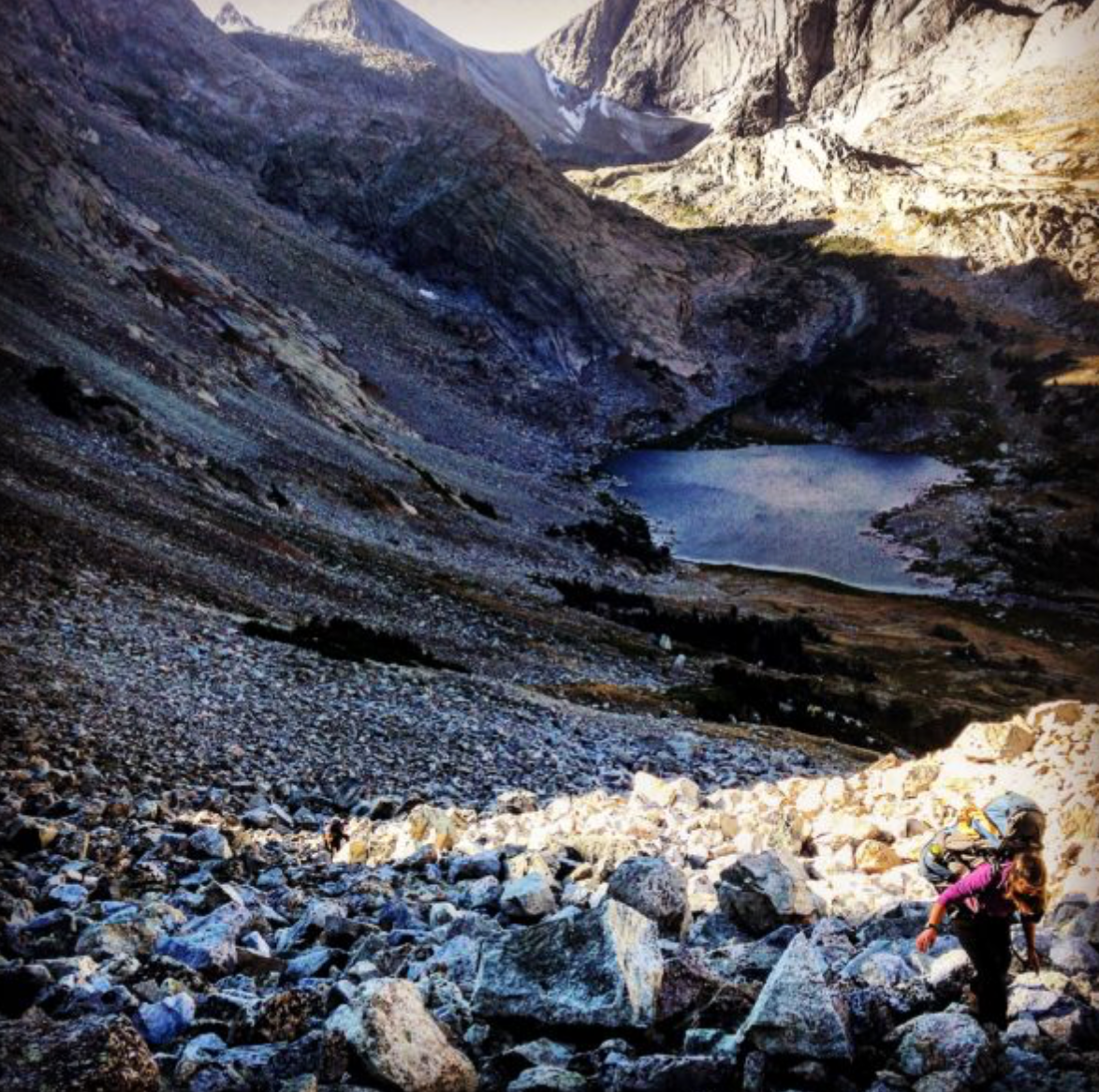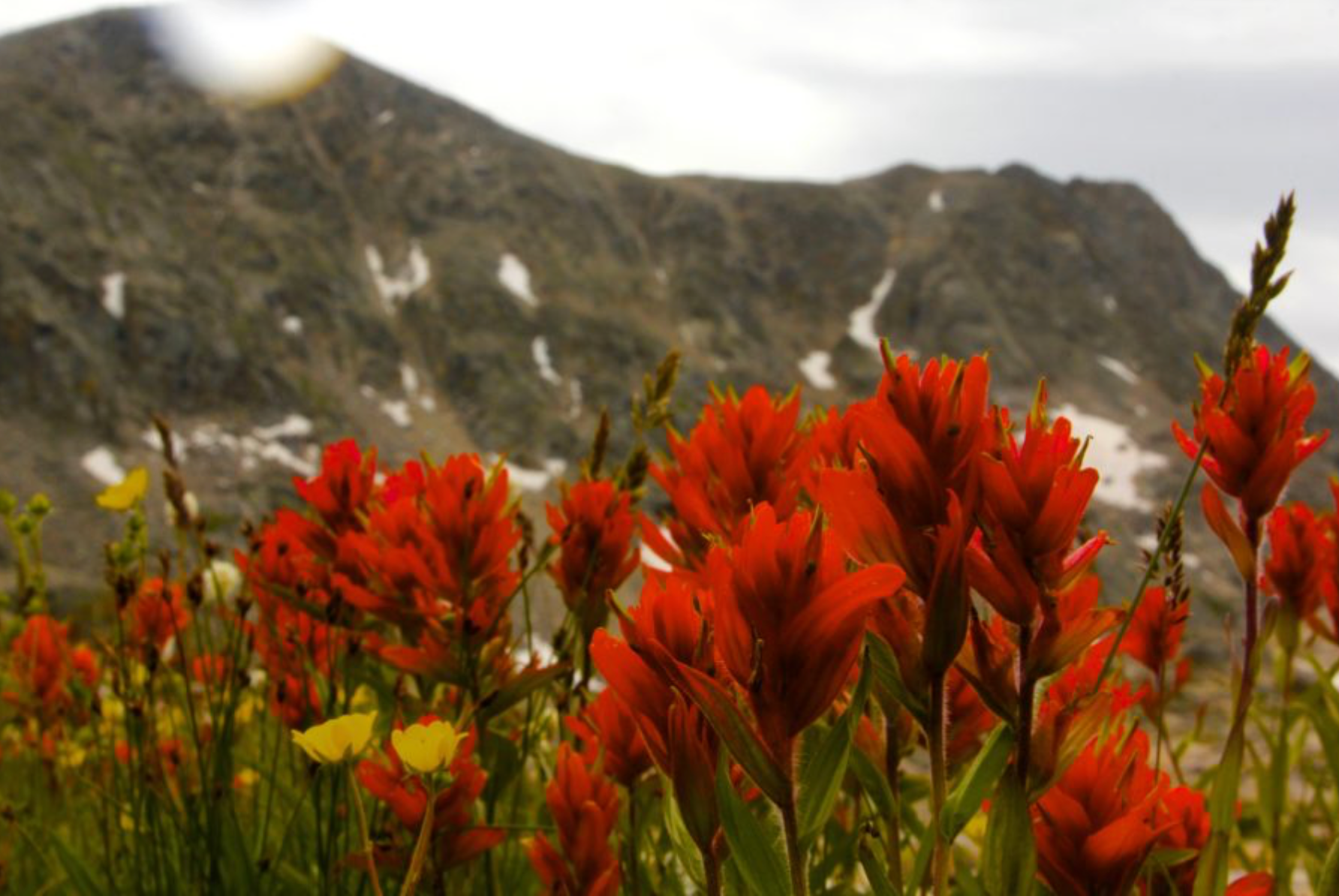
The 4-part Outdoor Adventure Series will consist of essays written by students who participated in one of Wyoming Catholic College’s COR Expeditions: a 21-day backpacking trip infused with faith, community, virtue and beauty.
Choose Wisely by Emily Gecosky
Wild berries were our staple snack food during our time in the Wind River Range of Wyoming. They were our sustenance: our sweet antidote for the soggy bland oats, the crown of our backcountry apple pie, the rich carpeting of several campsites, and even fish food. I remember standing on a rock one day during our three week escapade, tossing small rosy berries onto the surface of the veiled yellow depths of Lake Vera. I watched them drift lazily, and within moments a little fish pounced upon one of the berries, sucking it up with a sudden plop.The other berries soon met their demises in this fashion. Moments ago the fish had been wandering the sandy floor of the lake, sucking on pebbles and spewing them out again, but they forgot about their pebbles when they noticed the berries.

How like these fish we as human beings are: searching, foraging, grabbing at good things when we perceive them— perhaps for better things than we had before, as the fish abandoned their pebbles for the sake of berries. But what if they weren’t good— what if the berries I threw to the fish were poisonous? They probably would’ve eaten them anyway, mistaking them for food. In the same way, I think we often judge incorrectly: that in our innate desire for good things we can end up taking what merely appears good, but what is not actually good, and that in our hunger we often don’t distinguish between good berries and poisonous ones. We are beings cursed by concupiscence, which is the moral tendency to veer off course as misaligned tires would cause a car to tend slightly to the left, needing constant correction. It is precisely this bi-product of the Fall which makes us confused and causes us to choose wrongly. I then remembered how C.S. Lewis put words to such confusion in his Screwtape Letters. In one of the letters, the demon Screwtape corresponds with a less experienced demon, instructing him in the fine art of corrupting people. He explains the subtle differences between kinds of joy and how to use them to their advantages. Screwtape says, “Fun is closely related to Joy— a sort of emotional froth arising from the play instinct. It is very little use to us. It can sometimes be used, of course, to divert humans from something else which the Enemy would like them to be feeling or doing: but in itself it has wholly undesirable tendencies; it promotes charity, courage, contentment, and many other evils.
The Joke Proper, which turns on sudden perception of incongruity, is a much more promising field…” (Lewis, 50). The demons speak of a type of joy that will strengthen a person with good things versus a joy that will lead to their ruin— the difference between the good berry and the poisonous berry. People love and gravitate towards humor— why else are memes so popular? But in their desire for humor, they are prone to choosing the detrimental kind, a kind that will wound and degrade. A sad irony arises as well: even the demons are confused on what is “Enemy” and “evil”, as they use these words to refer to “God”, and to “goodness”. They have it flipped around.

My thoughts were interrupted by the chattering of chipmunks in the trees above me. There I stood, thinking deeply over something as insignificant as snacking fish. It wasn’t all that strange, since the day was especially set aside for this kind of meditation, for silence and self-reflection. A few hours in the presence of raw nature can turn anyone into a philosopher. With the day ahead of me, I kept tossing berry after berry, seeing the hungry mouths of fish breaking the surface of the glassy yellow water.